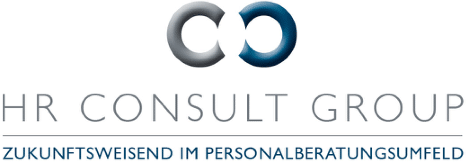Legal requirements must be observed when developing and introducing codes of conduct.
1. Introduction
As companies move into markets in developing and emerging countries, considerations of corporate responsibility are becoming increasingly relevant. In many host countries, companies are often confronted with unfamiliar realities: foreign cultural norms, legal uncertainty, volatile political conditions, unpredictable administrative bodies, or irresponsible treatment of the environment, corruption and the violation of internationally recognised labour standards and human rights.
The company must actively address these framework conditions, as it is expected to assert the high standards of responsible business practices customary in its home country in its sphere of influence (suppliers, employees, locations, etc.) as well as in the sourcing, production and export countries.
An established instrument for avoiding possible impairment by stakeholders in the sphere of influence of a company is the so-called Code of Conduct. With a customised Code of Conduct, a company lays down concrete guidelines for action to comply with its central ethical and moral obligations. This instrument has a regulatory (suppliers) as well as a communicative component (stakeholders) and can make a major contribution to the credibility of the company through practical development and credible implementation.
2. Reasons for the introduction of codes of conduct
On the one hand, the reasons for the introduction of a Code of Conduct lie in the aforementioned dangers, which have their origin in the internationalisation of companies as well as in the increasing globalisation. On the other hand, the reasons result from dependencies, e.g. on the US Sarbanes Oxley Act. This requires listed companies in the USA to ensure that misconduct in the areas of accounting and banking as well as white-collar crime - which encompasses a broad spectrum of possible offences - is uncovered and eliminated as quickly as possible. German companies are covered by the obligations of the Sarbanes Oxley Act if their parent company is listed in the USA.
The measures required for compliance with the requirements of the Sarbanes Oxley Act are implemented in the form of codes of conduct in the companies. Concrete behavioural requirements are intended to reduce or minimise the liability risks of the companies.
In Germany, there is an increasing trend for companies that are not listed on the stock exchange or do not have a listed parent company to commit to the introduction of codes of conduct or the establishment of reporting systems in the event of breaches of the rules. There are very different reasons for this form of voluntary commitment - from the planning of an IPO to the realisation that a code of conduct is a contemporary instrument of "corporate governance" that is expected by stakeholders.
3. Goals and contents of codes of conduct
The objectives of codes of conduct are mostly comparable, while the contents can vary greatly from company to company.
The essential goal - although often formulated in very different ways - is to minimise liability risks by specifying concrete rules of conduct. These usually refer to different organisational units (e.g. sales, human resources, etc.) as well as to different processes. In a certain sense, the company "shifts" the risks resulting from misconduct to the respective acting persons and thus takes advantage of a possibility of exculpation. The fact that this is only of a relative nature is ultimately shown by the fact that the company and not the individual employee is usually pilloried in the media - exception: board or management members.
The contents, on the other hand, usually vary greatly: some companies limit themselves to briefly and succinctly obliging their employees to comply with the applicable laws and internal instructions and to report violations. In most companies, however, it can be observed that the Code of Conduct contains a large number of concrete, situation-related rules of conduct, which in total go far beyond what is required by the Sarbanes Oxley Act. Here are a few examples:
- Confidentiality obligations
- Acceptance of gifts
- Prohibition of alcohol, drugs and intoxicating medicines
- Use of company facilities (telephone, machines, vehicles)
- Non-acceptance of child labour
- Violations against environmental protection
- Employment of family members with competitors
The establishment of the rules of conduct is further accompanied by sanctions that are determined in the event of violations of the rules of conduct. These range from simple disciplinary measures to summary dismissal with criminal charges.
Another component of codes of conduct are so-called "whistleblowing systems", through which violations are reported. These are usually hotlines or special e-mail addresses - anonymity and discretion are basic requirements without which such a reporting system would hardly work in practice (who wants to be seen as a "denunciator", even if they are obliged to report violations under the Code of Conduct?)
If we compare the development of codes of conduct between the USA and Germany, the high number of specific rules of conduct in the US codes of conduct can be explained historically by a significantly lower density of legal regulations in labour law than we know from Germany. However, in Germany, too, there is sometimes a pronounced "regulatory frenzy" on the part of those responsible for compliance, although many of the regulated facts find their legal recognition both in substantive labour law and in labour law jurisprudence, which has been developing for decades.
About the author

Eckart Achauer, studied law and business administration, postgraduate studies to become a Master of Business Administration (MBA). In-service training to become a European Quality Manager (DGQ), a mediator specialising in business mediation and a Certified Compliance Manager (TÜV).
He worked for around 10 years in the international insurance industry in the management of a Swiss insurance group in various functions (claims department, sales, assistance) before moving into management and business consulting in 1997.
As a consultant and managing director of various consulting companies, Mr Achauer has specialised thematically in organisational and process optimisation as well as in the development and implementation of management systems - quality management, risk and compliance management.
At Senator Executive Search Partners, Mr Achauer is responsible for the area of compliance management. Within the scope of compliance audits, he analyses their organisational "compliance fitness", he sensitises and trains the management, executives and employees and supports the companies in setting up and implementing individual compliance management systems. In doing so, he always takes into account the specific risk situation of the companies. Due to his many years of experience as a manager and consultant, he is very familiar with the entrepreneurial challenges from practice.




